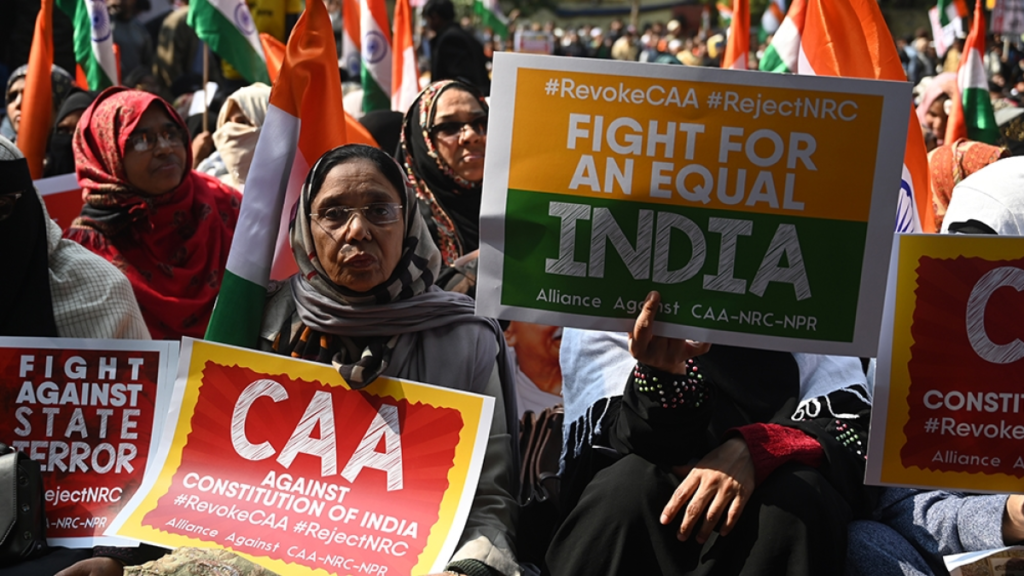The statement of the USA on CAA claims that it is “closely monitoring” CAA implementation, emphasizing religious freedom. To this India responds, “lectures by those with limited understanding of India’s pluralistic traditions…are best not attempted”
India responded to the U.S. State Department’s criticism of the disputed Citizenship Amendment Act on March 15, calling it “misinformed and unwarranted.”
Randhir Jaiswal, spokesperson for the Ministry of External Affairs, argued in a weekly press. He briefed in support of the Indian constitution’s inclusive provisions and rejected any concerns about the Act, characterizing it as “laudable”.
“The CAA is about granting citizenship, not denying citizenship. It addresses the issue of statelessness, promotes human dignity, and upholds human rights. Mr. Jaiswal stated that the U.S. State Department’s stance on implementing CAA needs to be corrected, as it is inaccurate and unnecessary.
USA on CAA implementation

According to U.S. State Department spokesperson Matthew Miller, at his regular conference on Thursday, “We are concerned about the notification of the Citizenship Amendment Act on March 11.” “We are keenly monitoring how the Act will be enforced. Mr. Miller said that respect for religious freedom and fair legal treatment for all communities are important democratic principles.
Mr. Jaiswal responded, “India’s constitution provides freedom of religion to all citizens. There are no grounds for worry about the treatment of minorities. Vote bank politics should not influence opinions about a good attempt to assist individuals in difficulties. He further adds, lecture with a poor awareness of India’s diverse traditions and the region’s post-Partition history are best to avoid.
Why Muslims are against CAA?

Parliament passed the CAA on December 11, 2019, and the President of India obtained approval the following day. The law aimed to offer citizenship to oppressed religious minorities from Pakistan, Bangladesh, and Afghanistan, except Muslims. It sparked major protests across India, particularly in Assam and Delhi. The CAA does not explain why Muslims were excluded from the list of communities. However, it does indicate that “the constitutions of Pakistan, Afghanistan, and Bangladesh provide for a specific state religion.”
The law wasn’t applied from four years and two months until CAA Rules were announced this week, on March 11.
Mr. Jaiswal repeated the details of the CAA, saying, “The Citizenship Amendment Act, 2019 (CAA) is an internal affair of India and is consistent with India’s inclusive values and long-standing commitment to human rights. The Act provides a haven for persecuted minorities from Afghanistan, Pakistan, and Bangladesh who are Hindu, Sikh, Buddhist, Jain, Parsi, or Christian and entered India on or before December 31, 2014.


